The show ANGELA (a strange loop), presented as a national premiere on 19 September at the Teatro Argentina by the Romaeuropa Festival, is for attentive spectators with remarkable perceptive skills. Indeed, director Susanne Kennedy and multimedia artist Markus Selg have staged a pastiche overflowing with sensory deceptions and enigmatic quotations that challenge the commitment of those sitting in the theatre’s soft seats.
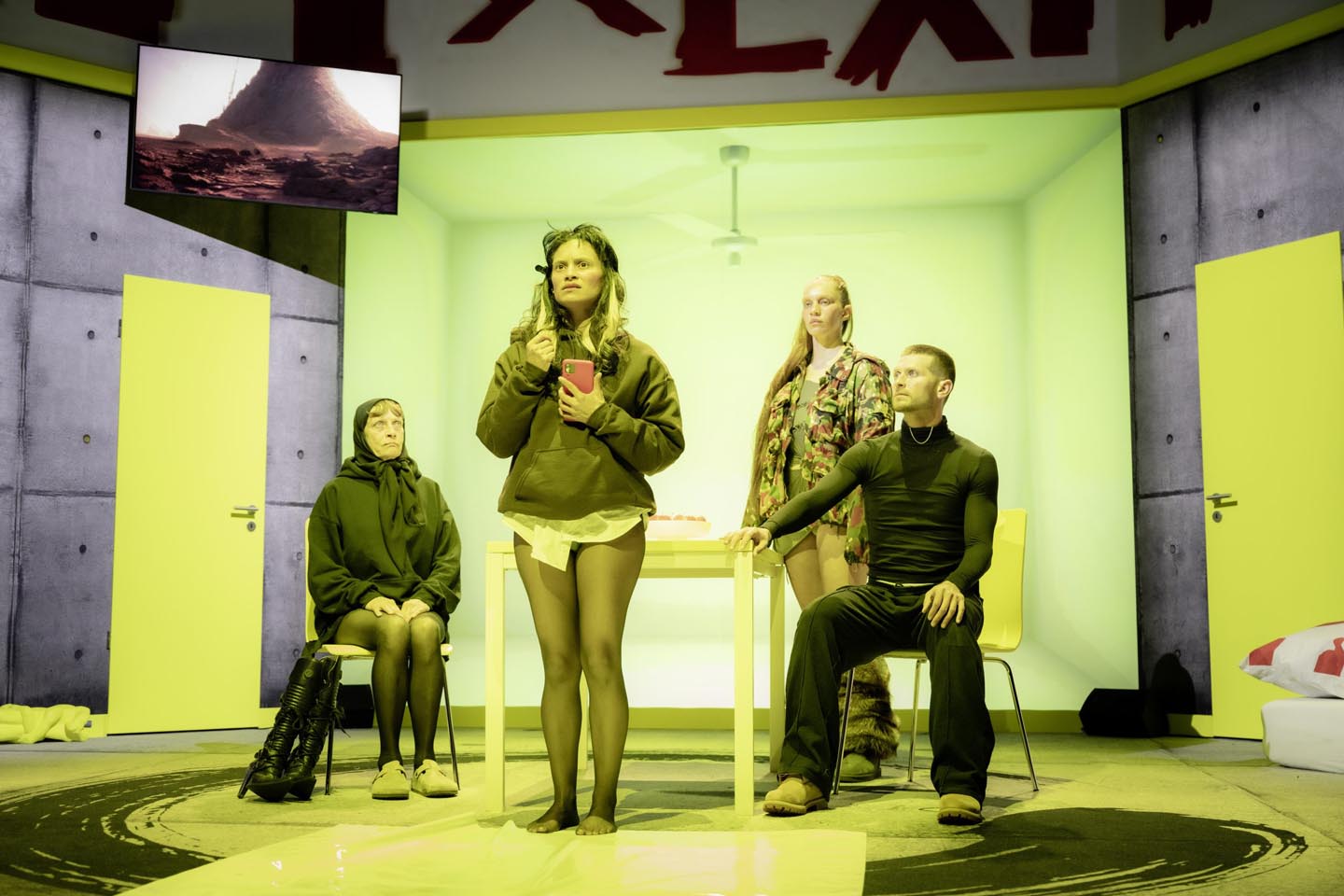
It begins with a scrolling written warning projected, similar to those one usually reads in the credits of films at the cinema: ‘This play is a reconstruction of real events. It is based on private diaries, public documents and hundreds of hours of recorded interviews’, followed by alchemical quotations in perfect New Age style that give indications of the probability of a tripartite alchemical transformation (Nigredo, Albedo and Rubedo): the latter seem to allude to a hypothetical journey towards enlightenment of the protagonist, but the certainty of witnessing a truthful narration is immediately disillusioned by the indeterminacy of the warning ‘as far as I know’, which closes the warning in perfect colloquial whatsapp style.
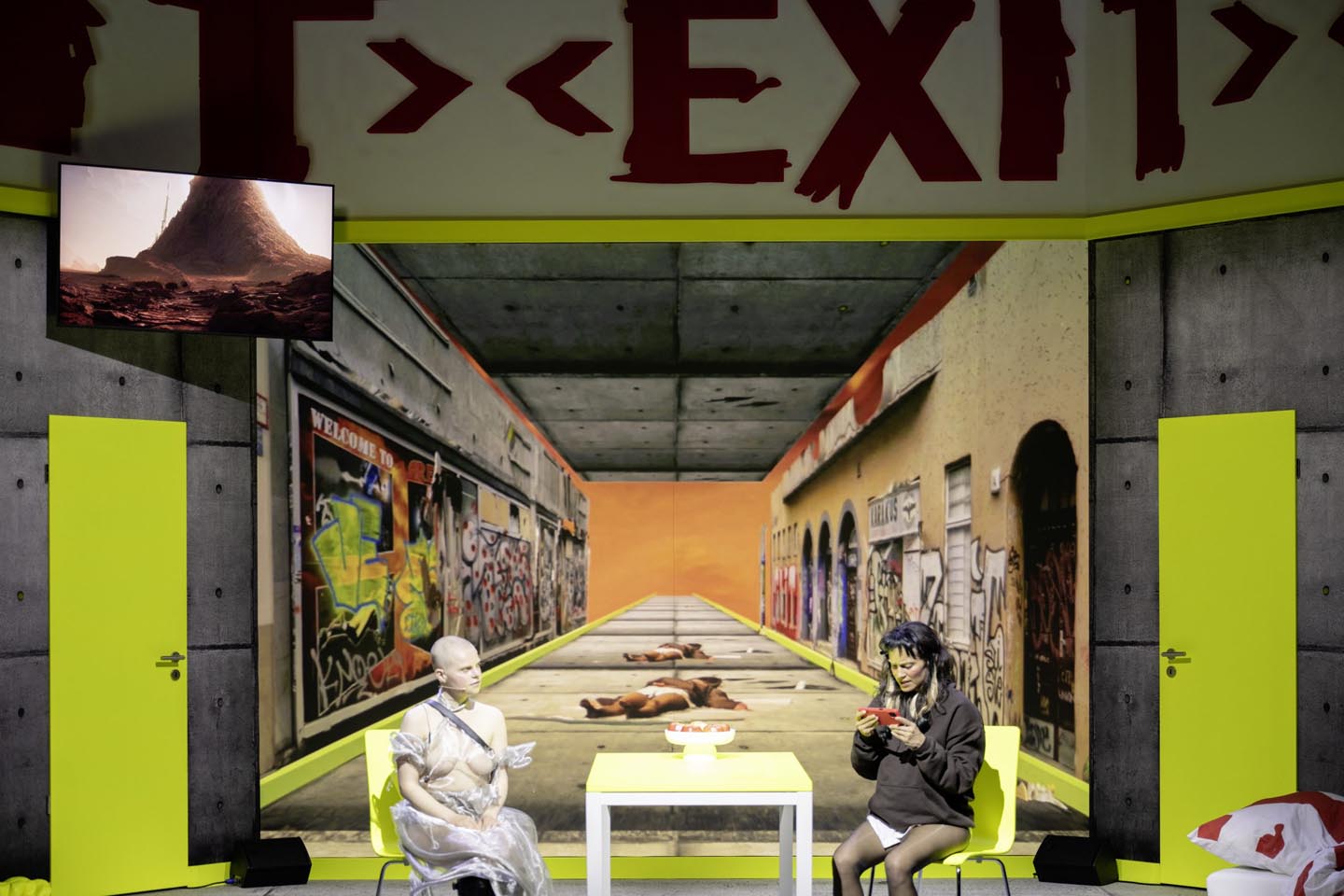
The trivialisation of language transformed by technologies constitutes a set of indications of the urban and domestic space-time loop of this performance: from the colourful scrolling writings that illuminate the scene, to the code of social network messaging, to the large EXIT graffiti endlessly repeated on a wall, to the interventions on a screen of a kind of Tamagotchi dog avatar, a postmodern evolution of an unheard talking cricket.
The space in which the life of the protagonist Angela – dressed in the unfailing hoodie, pants and tights – a young influencer in a state of repeated malaise played by Ixchel Mendoza Hernández, unfolds, is a curious mix of the miserable reality of exposed concrete walls, two fluorescent yellow doors, a mattress on the floor with an Ikea duvet that is always unmade, a screen hanging on the other side and the backdrop of a beautiful and impossible house.
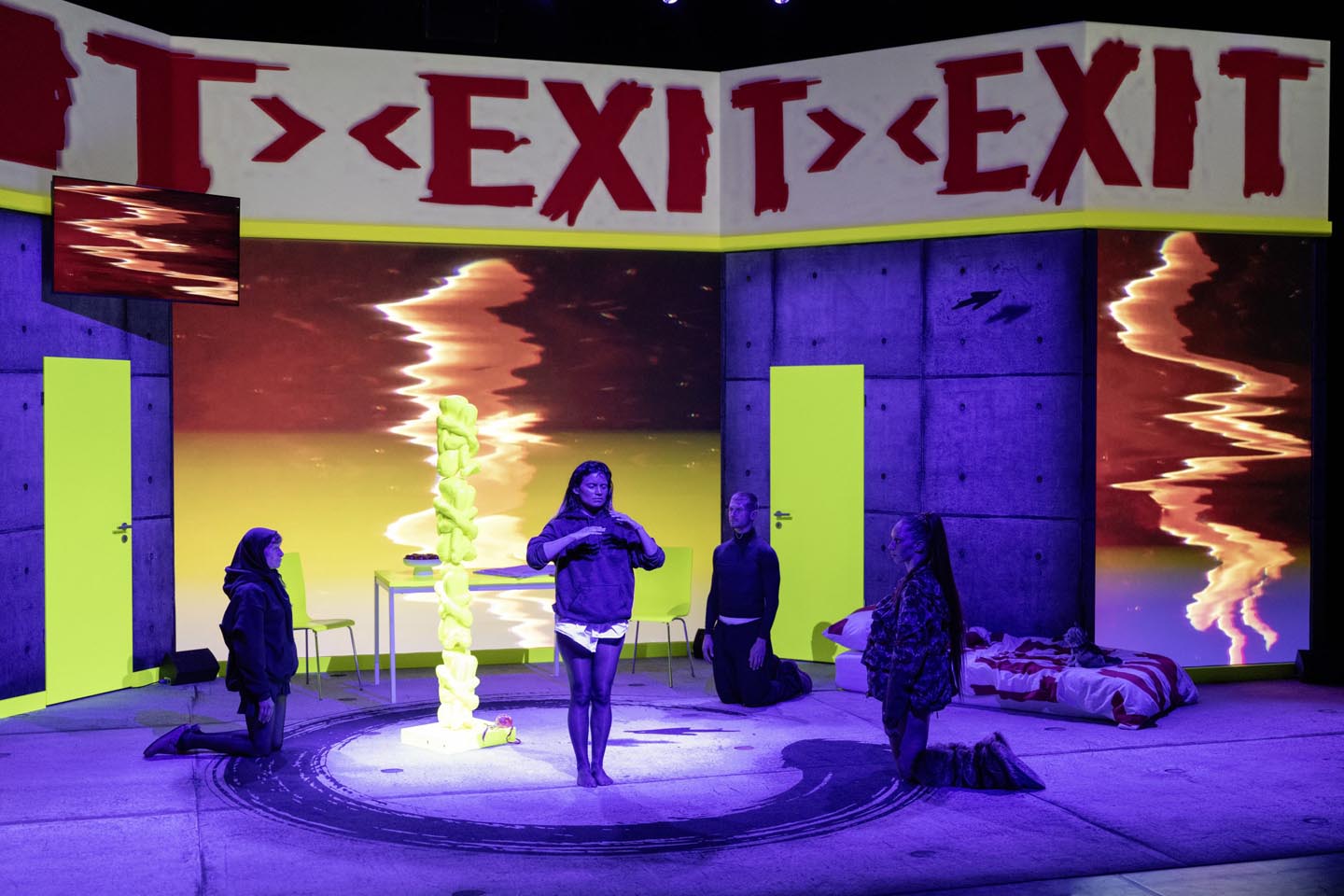
The latter consists of a single background wall so well drawn in 3D that it looks real, were it not for the fact that a hypnotic ceiling fan, always in motion, betrays the fiction. The fan, then, acts as a sound carousel against which the spectator conducts a hand-to-hand fight in order not to fall asleep, anaesthetised by the banal conversations that mirror the relationships between the characters: it is difficult to realise, then, with the over-titling that translates the dialogues, that the actors’ voices are not live, but pre-recorded. Ah, ah, the actors remark in perfect social language. Ah, comment in amazement the disheartened spectators in the back row who, after the performance, read the theatre programme that reveals to them, at last, the instructions for use.
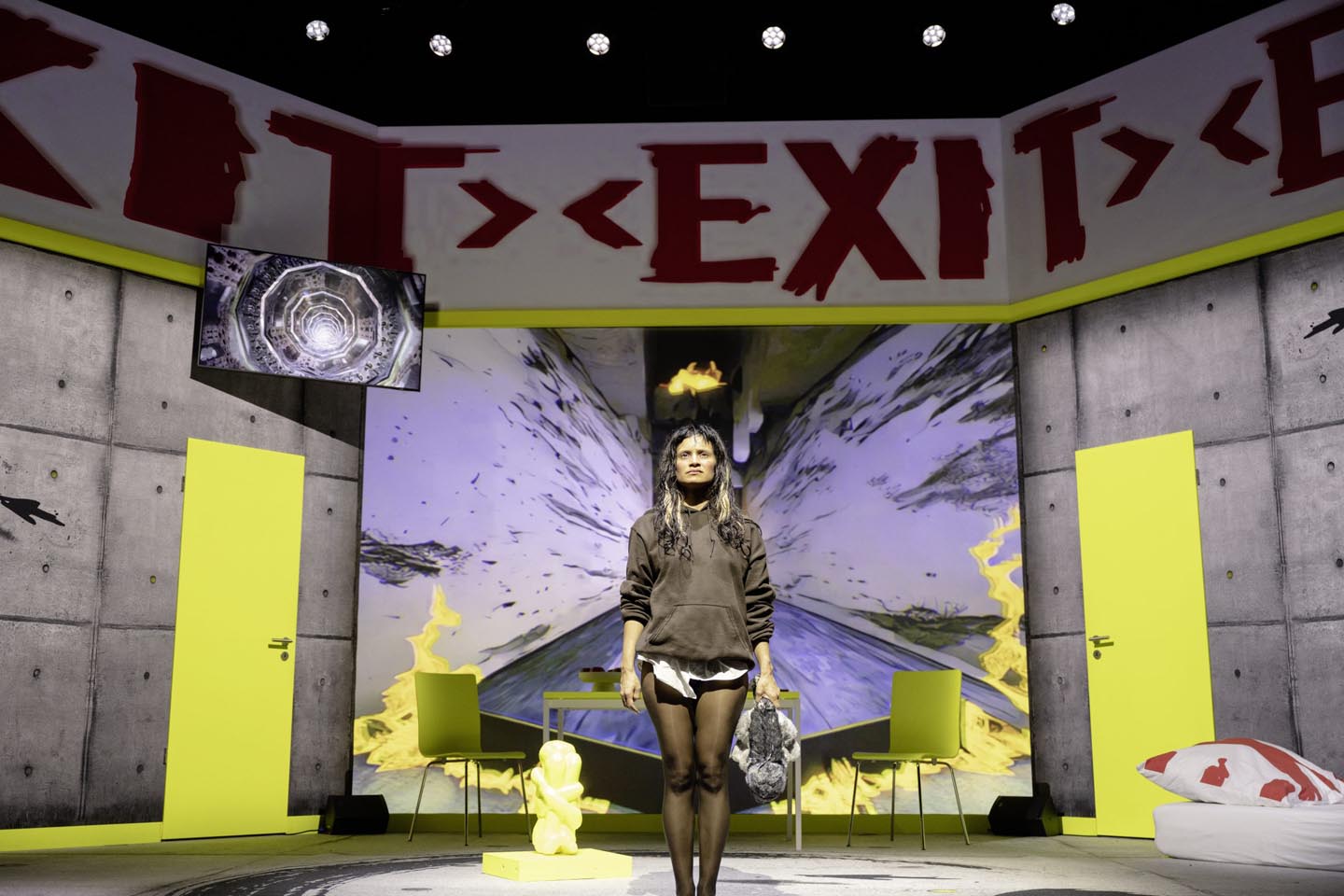
They applaud and also wonder why they feel the sense of intoxication and malaise at the end of this loop. Perhaps the suffering still infects them, like that virus that locked them inside the walls of their homes for two years, with no way out, just like Angela.
Susanne Kennedy, ANGELA (A strange loop), © Julian Roder, Teatro Argentina, Rome, Romaeuropa Festival, 20.09.2023
images (all) Susanne Kennedy, ANGELA (A strange loop), © Julian Roder, Teatro Argentina, Romaeuropa Festival, 20.09.2023
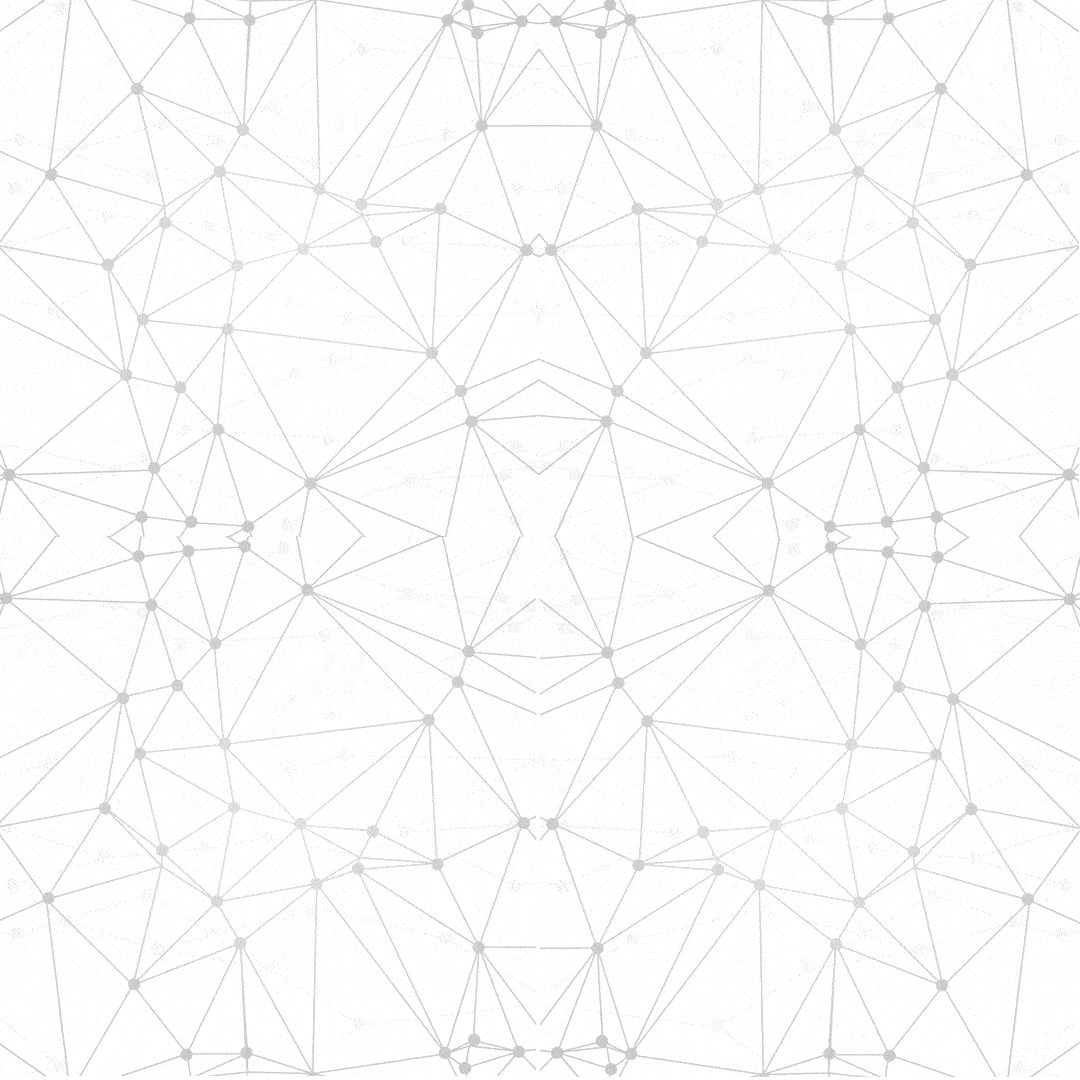
© Andreaelisa Sausa









































